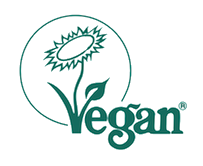The Vegan Society
The Vegan Society is an organization that was founded in November 1944 by a group of vegetarians who recognized the ethical, health, and environmental implications of consuming animal products and sought to promote a lifestyle free from animal exploitation. The society is based in the United Kingdom but has a global influence, advocating for veganism through education, research, and various campaigns.
History[edit | edit source]
The Vegan Society was established by Donald Watson and a group of like-minded individuals who gathered to discuss the principles of what was then a new movement. They coined the term "vegan" by combining the first and last letters of "vegetarian." Initially, veganism was defined as a diet free of animal products for ethical reasons. Over time, the definition has evolved to encompass a lifestyle that seeks to exclude, as far as is possible and practicable, all forms of exploitation of, and cruelty to, animals for food, clothing, or any other purpose.
Mission and Activities[edit | edit source]
The primary mission of The Vegan Society is to make veganism an easily adopted and widely recognized approach to reducing animal suffering and environmental damage. The society engages in various activities to promote veganism, including:
- Education and Outreach: Providing resources and information to individuals, schools, and businesses about the benefits of a vegan lifestyle.
- Campaigns and Advocacy: Leading campaigns on issues such as food labeling, access to vegan food in public institutions, and the environmental impact of animal agriculture.
- Research and Publications: Conducting and supporting research on the impacts of veganism and publishing guides, reports, and a quarterly magazine, The Vegan.
- Community Support: Offering support to new and existing vegans through mentorship programs, local groups, and online forums.
Membership and Community[edit | edit source]
The Vegan Society offers membership to individuals who support its aims and principles. Members receive benefits such as discounts on vegan products and services, a subscription to The Vegan magazine, and voting rights at the society's Annual General Meeting. The society also fosters a global vegan community through social media, events, and collaborations with other organizations.
Impact and Recognition[edit | edit source]
The Vegan Society has played a pivotal role in the growth of veganism as a recognized and respected lifestyle choice. Its work has contributed to the increased availability of vegan products in supermarkets, restaurants, and other outlets. The society's trademark, a sunflower symbol, is used on product packaging to indicate that items are vegan and cruelty-free, providing consumers with confidence in their purchasing decisions.
Challenges and Controversies[edit | edit source]
Like any movement, veganism and The Vegan Society face challenges and controversies. Debates within the vegan community regarding the most effective strategies for advocacy, the inclusion of health and environmental arguments alongside ethical ones, and the society's stance on issues such as genetically modified organisms (GMOs) and palm oil reflect the diverse perspectives within the movement.
Conclusion[edit | edit source]
The Vegan Society has been instrumental in the development and promotion of veganism. Through its comprehensive approach to advocacy, education, and community support, the society continues to advance the vegan movement, encouraging individuals and institutions to adopt practices that protect animals, the environment, and human health. Template:Vegan-stub
Navigation: Wellness - Encyclopedia - Health topics - Disease Index - Drugs - World Directory - Gray's Anatomy - Keto diet - Recipes
Search WikiMD
Ad.Tired of being Overweight? Try W8MD's physician weight loss program.
Semaglutide (Ozempic / Wegovy and Tirzepatide (Mounjaro) available.
Advertise on WikiMD
WikiMD is not a substitute for professional medical advice. See full disclaimer.
Credits:Most images are courtesy of Wikimedia commons, and templates Wikipedia, licensed under CC BY SA or similar.Contributors: Prab R. Tumpati, MD

